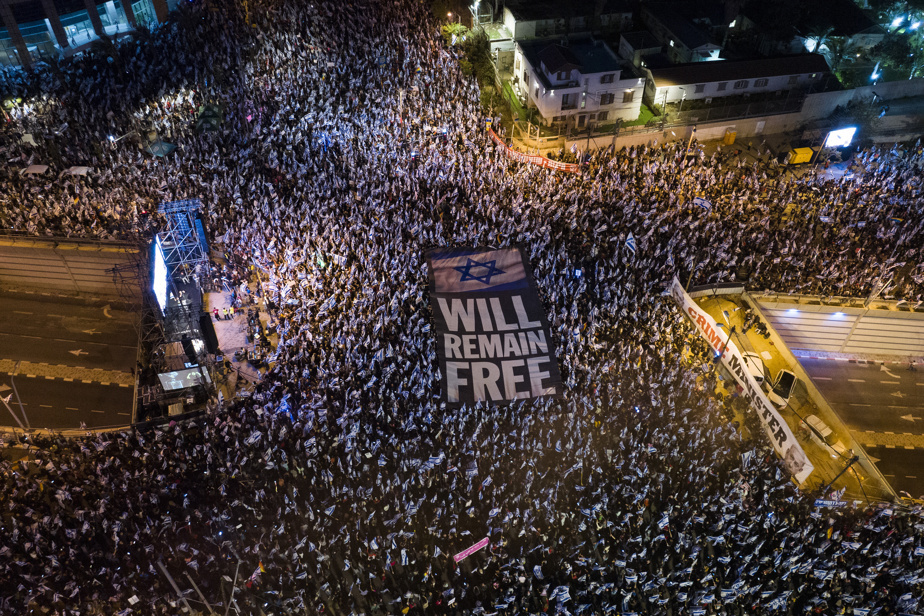(Tel-Aviv) Thousands of Israelis again took to the streets of Tel Aviv on Saturday evening to protest against the justice reform wanted by the government of Binyamin Netanyahu, which the demonstrators consider as an attack on democracy.
“Save democracy,” read placards amid a sea of Israeli flags as some protesters lit bengal fires and smoke bombs, AFP journalists found.
Other more modest demonstrations took place in other Israeli cities, in Haifa (north) and Jerusalem in particular, as well as in Modiin in the center of Israel, in front of the house of the Minister of Justice Yariv Levin.
Since the announcement of the reform project in early January, tens of thousands of Israelis have gathered every week to denounce the text and shout down the government formed in December by Mr. Netanyahu, one of the most right-wingers ever known. Israel.
The latter announced on March 27 a “pause” to give a “chance […] to dialogue”, after an intensification of the protest, the start of a general strike and the appearance of tensions within the majority, but the mobilization against the reform remains strong.
For the government, the text aims, among other things, to rebalance powers by reducing the prerogatives of the Supreme Court, which the executive considers politicized, for the benefit of Parliament.
Critics of the reform believe, on the contrary, that it risks opening the way to an authoritarian drift.
“We are fighting for our democracy, we have no other country,” Nadav Tamir, 61, from Givatayim, a suburb of Tel Aviv, told AFP.
“We are all tired and I didn’t want to come today, but my sister said to me ‘we have no choice’, and it’s true, we have no choice, we can’t let our guard down, we have to defend our country,” said Karen Baron, a 45-year-old psychiatrist from Tel Aviv.
The new protest comes as US ratings agency Moody’s announced on Friday that it was lowering Israel’s credit outlook from “positive” to “stable”.
This change in perspective reflects, according to the agency, “a deterioration in the governance of Israel, as illustrated by recent events surrounding the government’s proposal to reform the country’s judicial system”.
“While the mass protests have led the government to suspend legislation and seek dialogue with the opposition, the way the government has attempted to implement far-reaching reform without seeking broad consensus indicates a weakening of institutional strength,” she adds.

